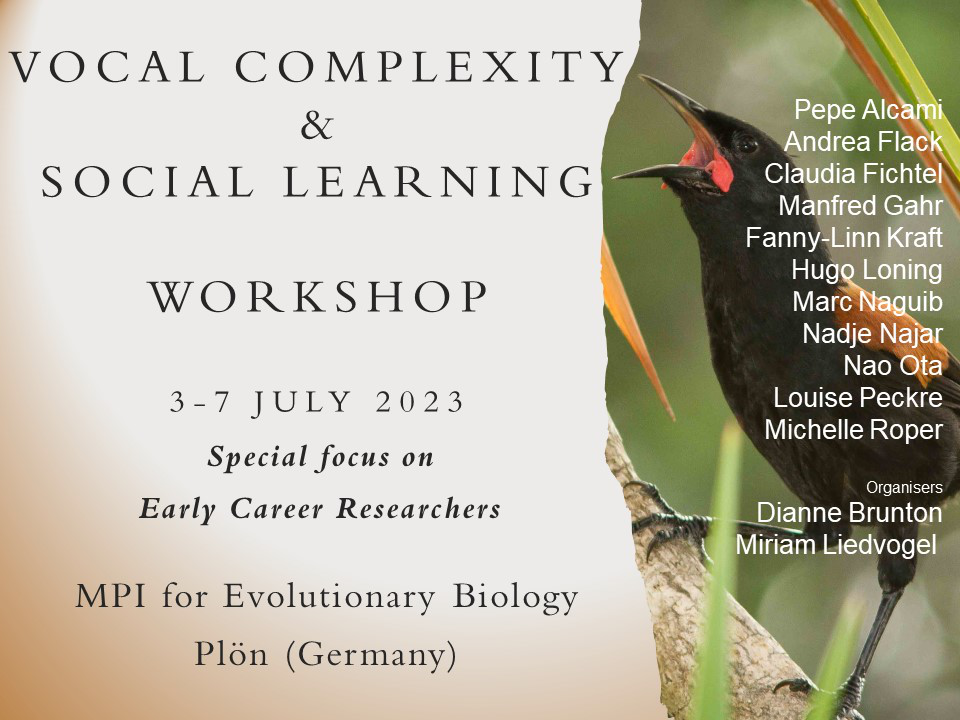Speaker
Description
For many bird species, songs play a central role in mate choice, and birdsong has been implicated as a possible driver of avian speciation. However, songs are socially learned, and the songs young birds experience influence the songs they produce later in life. This raises questions as to how innate biases play a part in enabling young birds to learn the song of their own species in an acoustically diverse environment. We can address some of these questions by investigating how young birds respond to songs, before the song learning process is complete. Nestling flycatchers have an innate response to conspecific song, but the underlying neural mechanisms are unknown. To better understand how the song learning process affects speciation, my colleagues and I have aimed to investigate whether the innate response to song is reflected in the neurogenetic mechanisms involved in song learning. We exposed nestlings of two closely-related flycatcher species (Ficedula hypoleuca and F. alcicollis) to conspecific and heterospecific song. We then examined gene expression in brain regions involved in song memory (NCM, CMM, and field L) using a low-input RNA-seq technique. In this workshop, I will present our initial gene-expression results. I will also present results from other studies I have been working on, investigating similar questions in this system. The results from these studies will have implications for the neural basis of early-life song discrimination and reproductive isolation in songbirds.

